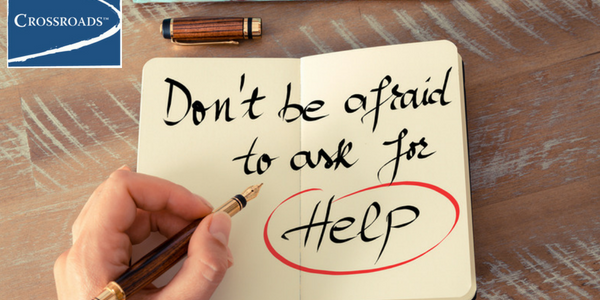A substance use disorder can turn your life upside-down. It can turn you into someone you hardly recognize anymore. But many people hit their own “rock bottom” where they realize that they don’t want to (or can’t) continue down the path they’re on and must do something to change it. They’re ready to admit that they need help and may turn to someone they trust to figure out where to get help for drug addiction and how to begin making this major change in their life.
Addiction recovery is not always an easy task, and it doesn’t happen overnight. It takes time, commitment, and support from professionals in navigating the path to recovery and building skills to reduce risk of relapse. It is not a journey you must go on alone. Having the strength and awareness to realize that you need is help is the first step in reaching out to others and getting into a comprehensive treatment program.
Contact Someone You Trust
Some people may need to ask questions to confirm to themselves that they have a problem and are ready to seek substance use help. These questions can help you to feel more comfortable confiding in someone you trust. Choose someone you know will have your back and be willing to walk beside you along each step of the way, not judging, but giving you the support and motivation you need. They can help you find substance use treatment centers that fit your needs.
What the Trusted Person Can Do to Help
Understanding alcoholism and drug addiction goes a long way in providing support. You and the person you confide in can learn together about addiction and the recovery process as you look for where to get help for drug addiction. They can also help you to stay accountable for following through and remind you of the benefits of addiction recovery and why you’re doing it to begin with. It is important to choose someone you know will love and support you on your best and worst days, because recovery can be challenging.
Be Open and Accepting of Treatment
You may feel hesitant about entering a treatment program because you’re unsure of what to expect and how your life will change. Try to keep an open mind and remember that everyone there is on your side and wants to help you get better. Substance use help can come in many forms, and you may be asked to do various activities or therapies that you’ve never done before. Trust in the process and be very open and honest with yourself and others.
Going Through with the Treatment Process
Even when recovery is difficult and you want to give up, keep pushing forward. Your addiction didn’t happen overnight, and neither will your recovery. Stay committed to what you are learning and apply these strategies as you develop healthier routines. There are certain rules of recovery to remember as well, such as not being afraid to ask for help, practicing self-care, being honest with yourself and others, and remaining committed to making positive changes in your life – without taking shortcuts or making exceptions – that can help you reduce risk of relapse and embrace lasting recovery. Recovery is about more than just stopping substance use – it’s about changing your thought processes, behaviors, and lifestyle.
Always Look on the Bright Side of Life
Do your best to keep a positive disposition even during trying times. There is always something to be thankful for. You’re alive. You were able to get substance use help to begin turning your life around. You’re learning how to overcome alcoholism and create a healthier lifestyle. The sun is shining. Keep a gratitude journal that you write in each day to remind yourself of all the reasons you have to be grateful, especially when you’re having a hard day.
Focus on Goals and Positives
Setting short- and long-term goals can be very helpful in addiction recovery because it gives you something to be constantly working toward. Choose things you want for yourself, not things you think will make others happy. Remember who you wanted to be and how far you have come from where you started. A positive outlook can make staying committed to recovery a little easier and help overcome feelings of depression or anxiety.
There are many substance use treatment centers throughout the country; do your research and find one that fits with your needs and preferences. Facilities like Crossroads in Maine offer not only personalized, comprehensive care, but gender-responsive treatment and co-occurring disorders treatment as well. If you’re struggling with how to overcome alcoholism or drug addiction, it is nothing to be ashamed of. Asking for help is a sign of strength. Find out how Crossroads can help you begin the road to recovery and remember who you wanted to be.
[cta]Are you ready to take the first step toward overcoming addiction? Contact Crossroads today to learn more about our gender-responsive treatment programs.[/cta]


















